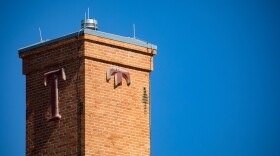The City of Austin is asking voters to let it borrow $350 million to pay for affordable housing. If approved, this would be the largest sum of bond money Austin has set aside for housing.
It’s called Proposition A. Here’s what you’ll see on your ballot:
The issuance of $350,000,000 in tax-supported general obligation bonds and notes for planning, designing, acquiring, constructing, renovating, improving and equipping affordable housing facilities for low and moderate income persons and families, and acquiring land and interests in land and property necessary to do so, funding loans and grants for affordable housing, and funding affordable housing programs, as may be permitted by law; and the levy of a tax sufficient to pay for the bonds and notes.
When City Council members voted in July to put this on the ballot, they noted the historic rise in what it costs to rent or buy a home in Austin over the past two years. The median sales price of a home in the city is now more than half a million dollars, and rents on many apartments are now $1,800 a month.
So, what would an affordable housing bond do?
What will this bond pay for?
The bond money, if approved, could be spent in several ways: building new houses, buying land on which to build homes and repairing or maintaining existing homes.
The city has leeway on how this money is spent. For example, money from a previous affordable housing bond was spent to buy several motels during the pandemic andconvert them into housing for people who had been living on the street.
What does the city mean by affordable?
According to the city, this money would only pay for housing for low- and moderate-income people. In many cases, this is usually rent-subsidized housing or income-restricted housing, where the government or a nonprofit pays to keep the rent low and makes that housing available to people earning below a certain wage.
While the city won’t put a number on it, this typically means someone earning at or below Austin’s median family income. As of this year, a single-person household in Travis County earned a median wage of $77,200 a year.

How many homes does the city anticipate will be built with this money?
The city estimates this money could build or preserve 3,500 homes, assuming, a city spokesperson said, that the cost of construction and rent subsidies equates to about $100,000 per home.
This could make a dent, albeit small, in a shortage of homes for the people who want to live in Austin. In a report published this summer, one nonprofit estimated that the city is short 27,383 housing units.
Hey, didn’t we just approve an affordable housing bond?
Yes, you’re right. In 2018, Austin voters approved a $250 million affordable housing bond, also known as Prop A. At the time, this was the largest bond for housing voters had passed.
Is that money all gone? If so, how was it spent?
The vast majority of this money has been spent. According to the city, it has about $36 million remaining, which it anticipates allocating in the next six months.
Nearly half of it — $100 million — was set aside for the city to buy land on which to build affordable housing. The city has since purchased more than 60 acres of vacant land, plus at least two dozen houses and several hotels.

Part of the homes bought with this money are being sold by the city as community land trusts — a model where the homeowner owns the house but not the land it sits on. The city has said it will prioritize selling some of these homes to people affected by historic displacement.
Who pays the bond back?
The city does with taxpayer money. So, you pay the bond back.
The city estimates that if this bond is approved, it will take 20 years (the term of the bond) to pay it back.
How will the bond affect property taxes?
The city estimates that someone owning a home with a taxable value of $358,400 would pay $46.59 more a year in property taxes in order to afford this bond. Commercial property owners, including landlords, will likely see a greater uptick in taxes since they don’t benefit from the same tax discounts as homeowners who live in their homes.














